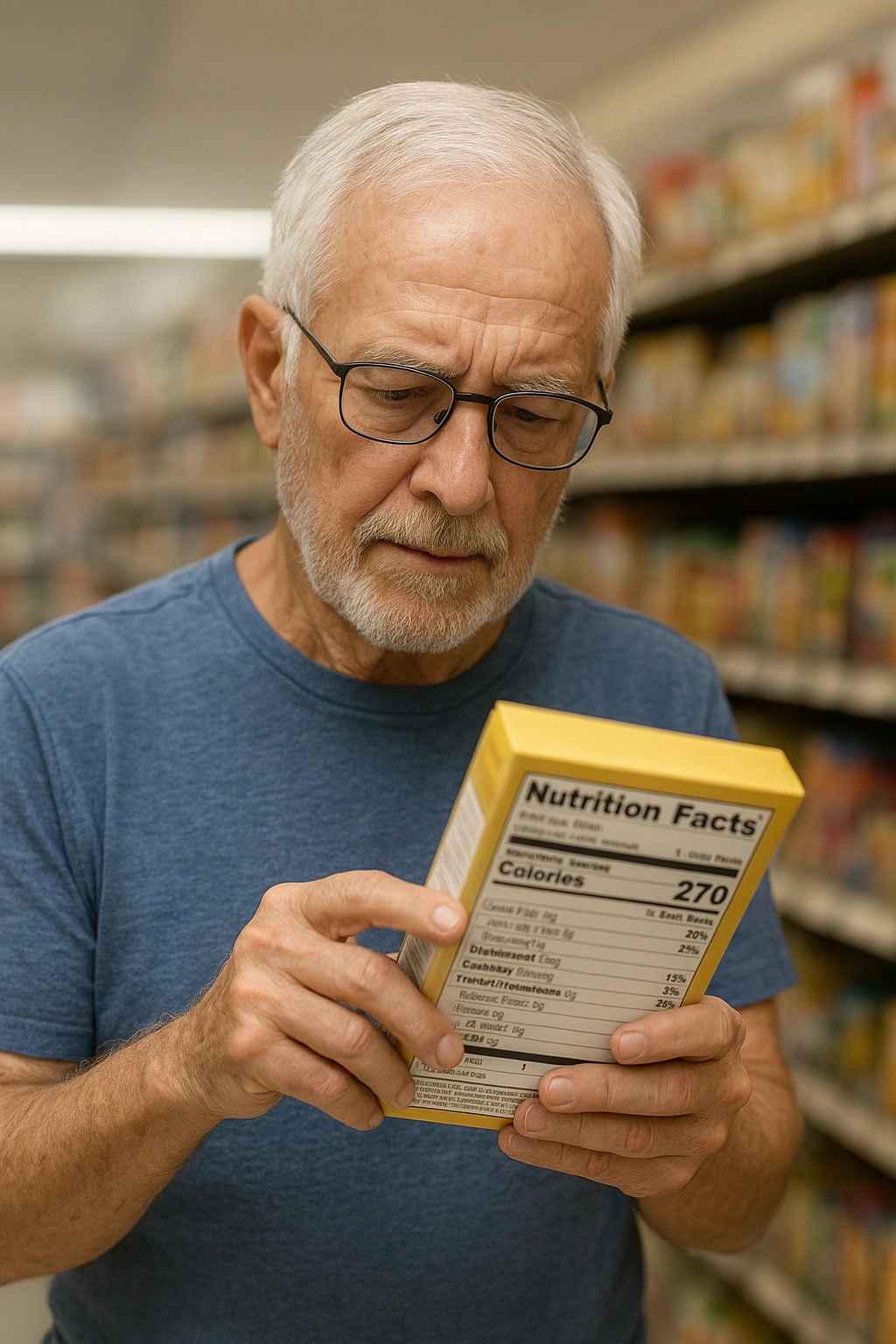
Have you ever noticed that the fuel you put in your car becomes even more critical as the engine gets older? The same is true for our bodies, and nutrition tips seniors can follow make this even clearer. As we age, the right nutrition isn’t just about managing weight; nutrition tips seniors highlight it as the high-octane fuel that powers energy, sharpens the mind, and keeps life active and independent. Yet, a staggering one in three seniors is at risk of malnutrition, which proves how essential practical nutrition tips seniors are for daily living. This isn’t just a statistic; it’s a call to action and a reminder of how valuable nutrition tips seniors can be for a healthier future.
This guide is packed with the essential nutrition tips seniors need for 2025 and beyond, offering practical advice that fits into daily life. By exploring nutrition tips seniors can easily apply, you’ll see how small adjustments create big improvements in energy and well-being. After reading, you will understand how nutrition tips seniors recommend reflect the body’s changing needs with age. Most importantly, you’ll leave with a clear, actionable plan built on proven nutrition tips seniors to support vitality, strength, and an active lifestyle.
What is Senior-Specific Nutrition?
Senior-specific nutrition is the science of tailoring dietary choices to meet the unique physiological changes that occur with aging. It’s not about restrictive dieting; it’s about strategic eating. As we get older, our metabolism naturally slows down, meaning we generally require fewer calories. However, our need for certain key nutrients—like protein, calcium, and B vitamins—actually increases.
This creates a challenge: how to get more nutritional bang for every caloric buck. According to the World Health Organization, a healthy diet is a cornerstone of maintaining physical and cognitive function in older age. It’s about focusing on nutrient density over empty calories to support everything from bone strength to brain health.
Why a Nutrient-Dense Diet Matters for Seniors
Adopting the right dietary habits is one of the most powerful forms of self-care available to seniors, and nutrition tips seniors make that process easier to follow. It’s an investment that pays dividends in energy, mobility, and overall quality of life when combined with practical nutrition tips seniors that support everyday routines. By applying nutrition tips seniors consistently, you build resilience against common age-related health challenges and feel more empowered in your choices. Here’s a breakdown of the profound benefits you can gain from embracing sound elderly diet advice alongside proven nutrition tips seniors for lasting well-being.
Maintaining Muscle Mass and Strength
After age 50, adults can lose up to 1% of their muscle mass each year, a condition known as sarcopenia. This loss of strength can lead to frailty and an increased risk of falls. A protein-rich diet is the primary defense, providing the building blocks necessary to preserve and even rebuild muscle tissue, ensuring you stay strong enough for daily activities.
Supporting Bone Health to Prevent Fractures
Osteoporosis, or brittle bones, is a silent disease that makes seniors highly susceptible to debilitating fractures. Calcium and Vitamin D work in tandem as the guardians of your skeleton. Calcium is the primary mineral that makes up bone, and Vitamin D is essential for your body to absorb that calcium effectively. A diet rich in both is crucial for maintaining bone density.
Boosting Cognitive Function and Mood
Your brain is a hungry organ. Nutrients like Omega-3 fatty acids (found in fish), B vitamins (in leafy greens and whole grains), and antioxidants (in berries) are vital for memory, focus, and mood regulation. Proper nutrition can help protect against cognitive decline and keep your mind sharp and engaged.
Strengthening the Immune System
A well-nourished body is better equipped to fight off infections and illnesses. Vitamins like C and E, along with minerals like Zinc, are critical for a robust immune response. This becomes increasingly important as the immune system naturally becomes less effective with age. Proper nutrition is like upgrading your body’s security system. Exploring healthy lifestyle choices, like those discussed at peternakan.web.id, can further complement a strong immune defense.
Core Nutrients: The “How-To” of Senior Nutrition
Understanding the “what” is one thing; knowing “how” to apply it is another, and this is where nutrition tips seniors make the difference. These nutrition tips seniors help simplify choices so you can focus on balance rather than restriction. By following practical nutrition tips seniors, it becomes easier to recognize which foods truly support energy and independence. Let’s break down the key food groups and nutrients that should be on every senior’s plate, guided by clear nutrition tips seniors for daily living.

Protein Power
To combat muscle loss, seniors should aim to distribute protein intake throughout the day. Instead of one large protein-heavy meal, include a source with breakfast, lunch, and dinner. Excellent sources include grilled chicken or fish, eggs, beans, lentils, tofu, and Greek yogurt.
Fiber for Digestive and Heart Health
Fiber is essential for preventing constipation, managing blood sugar, and lowering cholesterol. Focus on soluble fiber from oats, apples, and beans, and insoluble fiber from whole grains, nuts, and vegetables like broccoli and cauliflower.
Calcium and Vitamin D
Dairy products like milk, cheese, and yogurt are classic calcium sources. For non-dairy options, turn to fortified plant milks (almond, soy), canned sardines or salmon (with bones), and dark leafy greens. Your doctor may also recommend a Vitamin D supplement, as it’s difficult to get enough from food alone.
Hydration is Non-Negotiable
Dehydration is a common and serious issue for seniors. Don’t wait until you feel thirsty. Keep a water bottle with you and sip throughout the day. Unsweetened herbal tea, milk, and soups also contribute to your daily fluid intake.
A Sample Day of Eating for Vitality
Here’s what a day of applying these nutrition tips seniors can follow looks like:
- Breakfast (7 AM): A bowl of oatmeal made with milk, topped with a handful of blueberries, walnuts, and a sprinkle of cinnamon.
- Morning Snack (10 AM): A cup of Greek yogurt.
- Lunch (12:30 PM): A large salad with mixed greens, grilled chicken breast, cherry tomatoes, cucumber, and a light vinaigrette dressing, served with a slice of whole-wheat bread.
- Afternoon Snack (3:30 PM): An apple with a tablespoon of peanut butter.
- Dinner (6 PM): A fillet of baked salmon seasoned with herbs, served with a side of quinoa and steamed asparagus.
Comparison of Healthy Fats for Seniors
Not all fats are created equal. Choosing the right ones is crucial for heart and brain health. Here’s a comparison of excellent choices.
| Fat Source | Type of Fat | Key Benefits | Best For |
|---|---|---|---|
| Olive Oil | Monounsaturated | Lowers bad cholesterol, anti-inflammatory | Salad dressings, low-heat cooking |
| Avocado | Monounsaturated | Rich in potassium, fiber, and vitamins | Spreads on toast, adding to salads |
| Nuts & Seeds | Mono & Polyunsaturated | Good source of protein and fiber | Healthy snacking, topping for yogurt/oatmeal |
| Fatty Fish | Omega-3 (Poly) | Crucial for brain health, reduces inflammation | Main meals (salmon, mackerel, sardines) |
Common Nutrition Mistakes Seniors Make
Even with the best intentions, it’s easy to fall into common dietary traps. Being aware of these is the first step to avoiding them.
- Getting Too Much Sodium: Processed and canned foods are often loaded with sodium, which can elevate blood pressure. Opt for fresh or frozen vegetables and rinse canned goods.
- Not Eating Enough Protein: Fearing fat or calories, many seniors unintentionally cut back on protein, accelerating muscle loss. Prioritize a protein source at every meal.
- Relying on “Empty” Calories: Sugary snacks, white bread, and sodas provide calories with little to no nutritional value. These should be occasional treats, not daily staples.
- Forgetting to Read Labels: A “low-fat” label can often hide high sugar content. Become a savvy shopper by reading nutrition facts and ingredient lists.
- Skipping Meals: A reduced appetite can lead to skipping meals, but this can cause low energy and inadequate nutrient intake. Try smaller, more frequent meals instead.
- Thinking All Supplements are Harmless: Some supplements can interact with prescription medications. Always discuss any new supplement with your doctor before taking it.
Expert Tips & Best Practices
Here are some practical, expert-backed tips to make healthy eating easier and more enjoyable.

- Focus on a Colorful Plate: “Always aim for three different natural colors on your plate,” advises registered dietitian Dr. Jane Evans. “Color is nature’s way of signaling a variety of vitamins and antioxidants.”
- Meal Prep for Success: Cook in larger batches. Prepare ingredients like chopped vegetables or quinoa ahead of time to make assembling healthy meals quick and easy during the week.
- Make Social Meals a Priority: Eating with friends or family can improve appetite and make meals more enjoyable. If you live alone, consider joining a senior center for communal lunches.
- Listen to Your Body’s Cues: Eat when you’re hungry and stop when you’re full. This sounds simple, but it’s a powerful tool for maintaining a healthy weight without restrictive dieting.
- Adapt to a Changing Palate: Taste buds can change with age. If foods taste bland, don’t just reach for the salt. Experiment with flavorful herbs and spices like rosemary, garlic, cumin, or a squeeze of fresh lemon juice.
Frequently Asked Questions (FAQ)
Q: What is the most important nutrient for seniors?
A: While all nutrients are important, protein is especially critical for seniors to combat age-related muscle loss (sarcopenia) and maintain strength and mobility. Aiming for adequate protein at each meal is a key piece of elderly diet advice.
Q: How much water should a senior drink per day?
A: General guidelines suggest about 8 glasses (64 ounces) of water per day, but this can vary based on health conditions and activity level. Since the sense of thirst diminishes with age, it’s important to drink consistently throughout the day, even if you don’t feel thirsty.
Q: Are protein shakes a good idea for seniors?
A: Protein shakes can be a convenient way to increase protein intake, especially for those with low appetite or difficulty chewing. However, whole food sources of protein are always preferable as they provide other essential nutrients. Consult a doctor or dietitian before adding supplements to your diet.
Q: What are some healthy, easy-to-prepare snacks for older adults?
A: Excellent snack options include Greek yogurt, a piece of fruit, a small handful of unsalted nuts, hard-boiled eggs, or whole-grain crackers with cheese or avocado. These snacks provide a good balance of protein, healthy fats, and fiber.
Q: How can I make food taste good without adding too much salt?
A: Enhance flavor using herbs and spices like garlic powder, onion powder, paprika, rosemary, and thyme. A squeeze of fresh lemon or lime juice, or a splash of vinegar, can also brighten up dishes without adding any sodium.
Conclusion
Proper nutrition is not a short-term diet; it’s a long-term commitment to your vitality and independence, and this is where nutrition tips seniors can truly make a difference. By embracing simple but effective nutrition tips seniors can follow daily, you are taking a powerful step toward a healthier, more active future. The journey begins with a single meal, and applying nutrition tips seniors can trust helps turn that meal into a building block for well-being. Focusing on whole foods, adequate protein, and consistent hydration is the cornerstone of a thriving life in later years, supported by practical nutrition tips seniors can use every day.
For more detailed dietary guidelines, you can always refer to authoritative sources like the National Institute on Aging. Remember, the investment you make in your nutrition today will pay you back with energy and health for years to come.
What is one healthy food you will add to your shopping list this week? Share your choice in the comments below!
